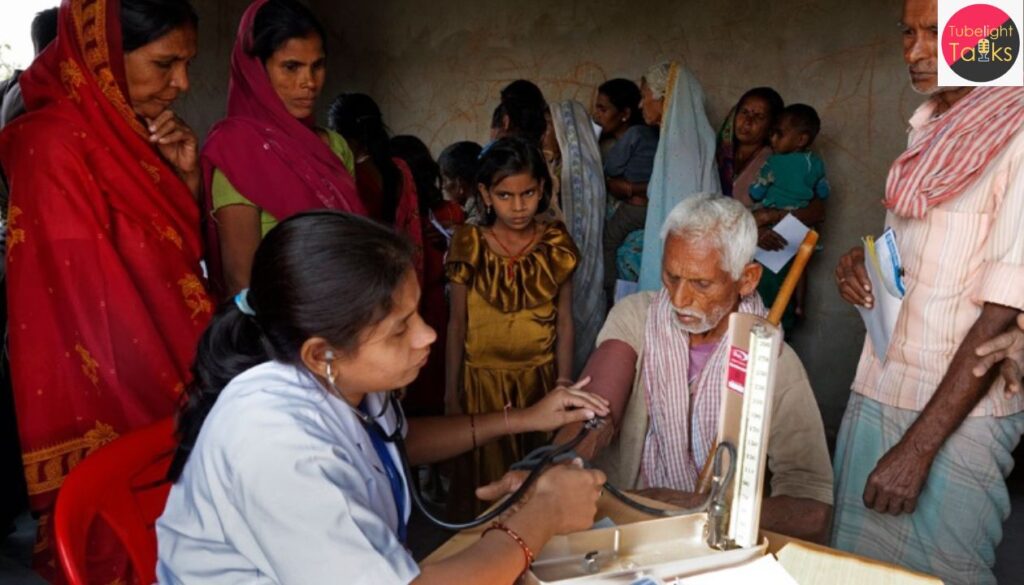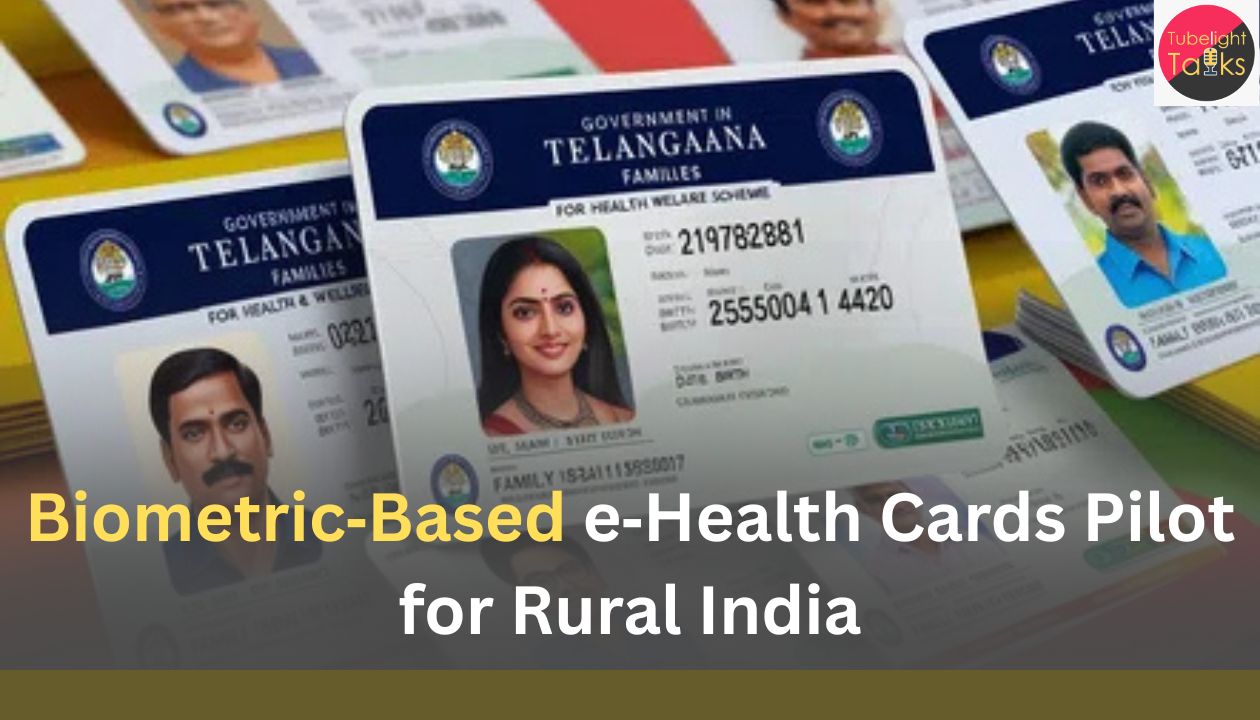Biometric‑Based e‑Health Cards Pilot for Rural India
Biometric‑Based e‑Health Cards: India’s rural landscape remains underserved in health‑infrastructure, suffering from fragmented records, identity challenges and limited continuity of care. The rise of digital health platforms — such as the ABHA card (Ayushman Bharat Health Account) — has created a foundation for interoperable health‑data systems.
To leverage this, the government is piloting a biometric‑based e‑health card in rural districts, designed to integrate identity authentication with health records, insurance coverage and telehealth access. The goal: register nearly 200 million rural beneficiaries by end‑2026 and accelerate universal health coverage.
Pilot Design & Features
Key Features
- Biometric authentication (fingerprint or iris) linked with each e‑health card to ensure accurate identity verification.
- Integration with ABHA and Ayushman Bharat portals so medical history, prescriptions and test‑results are linked digitally.
- Telehealth connectivity: rural beneficiaries can access virtual consultations and diagnostics using card‑linked identity.
- Insurance and scheme linkage: cards will automatically validate eligibility for government‑schemes, subsidies, medications and diagnostics.
Roll‑Out Strategy
The pilot will begin in 10‑15 rural districts across four states; registration booths and mobile‑units will operate to enrol families. Technical partners include MeitY, Ministry of Health & Family Welfare and state‑health authorities.
Data & Security Protocols
Health‑data encryption, two‑factor authentication and audit‑trails are mandated; guidelines will align with the Digital Personal Data Protection Act and health‑data norms.
Implications for Rural Healthcare
Access & Continuity of Care
With linked identity and records, patients in remote areas can receive teleconsultation, referrals and follow‑up without relying on paper‑records or repeated registration.
Administrative Efficiency
State‑schemes, insurance claims, diagnostics and drug‑delivery can be expedited with one‑card authentication—reducing leakage and improving subsidy targeting.

Data‑Driven Health Policy
Large‑scale digital health‑identity roll‑out will provide real‑time analytics for disease surveillance, resource‑allocation and health‑trends in rural India.
Also Read: Rural Healthcare in India: Major Government Initiatives in 2025
Challenges & Considerations
Connectivity & Infrastructure Gaps
Many rural areas lack reliable internet, power‑backup or digital literacy—these must be addressed for meaningful implementation.
Privacy & Trust
Linking biometrics, health‑data and identity raises questions of consent, data‑ownership and misuse—robust safeguards are essential.
Inclusion & Equity
Marginalised groups, tribal populations and those with disabilities may still face barriers—ensuring inclusive roll‑out remains key.
Sustainability & Maintenance
Device‑maintenance, card‑issuance logistics, updates, replacements and tech‑support must be factored into the operational costs.
Health‑Tech Humanitarian Inclusion
In healthcare innovation, the teachings of Sant Rampal Ji Maharaj remind us that true development serves all, preserves dignity and fosters participation. A biometric‑e‑health card programme is not merely about technology, but about empowering rural families, ensuring equal access to care and giving voice to the underserved. Viewed through the satgyan lens, health‑tech is meaningful only when it elevates humanity, not just digitises it.
What to Monitor
Registration Numbers
How many beneficiaries are enrolled, and how is uptake progressing across states?
Usage & Outcomes
Are rural card‑holders using telehealth services, diagnostics and follow‑up care? Are health outcomes improving?
Data Governance Framework
Are users’ rights protected, data‑breaches avoided and transparency maintained?
FAQs: Biometric e‑Health Cards Pilot for Rural India
Q1. What is the objective of the e‑health card pilot?
To enrol up to 200 million rural beneficiaries with biometric‑linked health‑cards that integrate identity, records, telehealth and scheme‑access.
Q2. Where will the pilot be implemented?
In 10‑15 rural districts across four states (initial phase) before national scale‑up.
Q3. What key features will the card support?
Biometric identity verification, digital health‑records, teleconsultation access and automatic eligibility validation for health‑schemes.
Q4. What infrastructure challenges must be addressed?
Internet connectivity, power‑supply, enrolment logistics, device maintenance and rural digital literacy.
Q5. What are the privacy safeguards?
Data encryption, two‑factor authentication, audit‑logs, and alignment with India’s digital‑privacy laws—users’ opt‑in and data‑use consent are central.











Discussion (0)